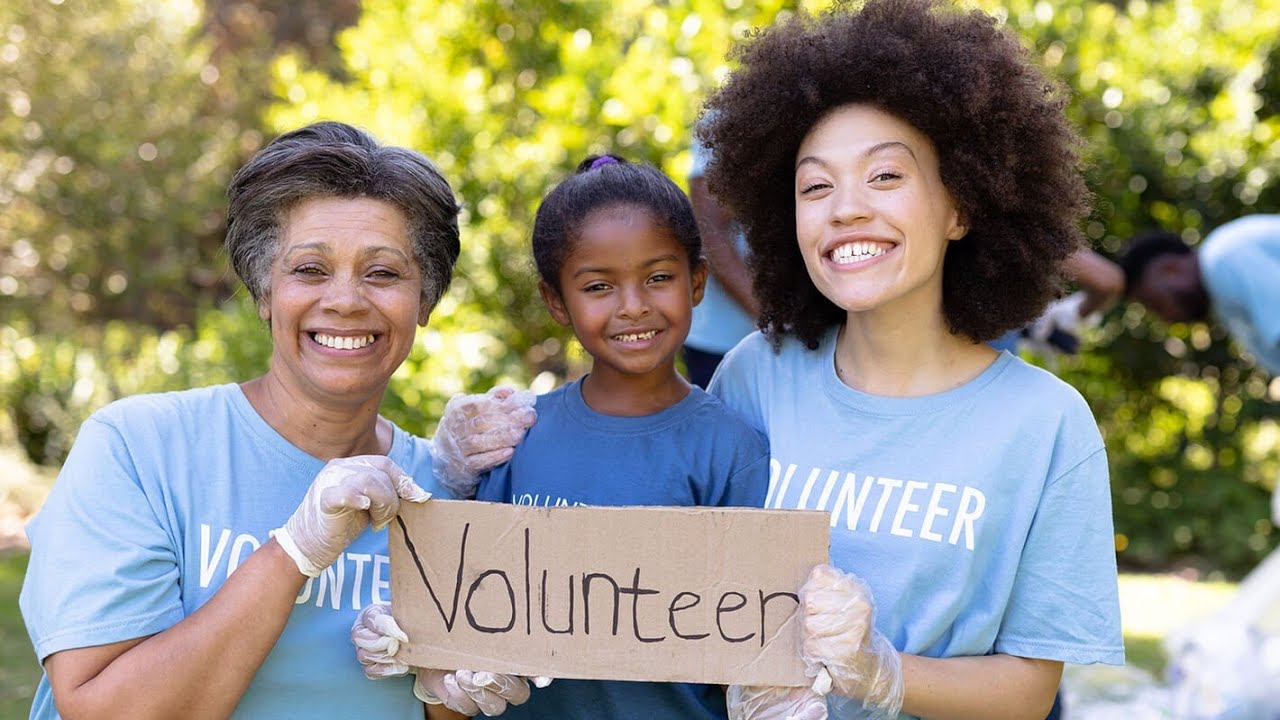Introduction: Why Volunteer Abroad?
Volunteering abroad is more than just a chance to travel—it’s an opportunity to immerse yourself in new cultures, contribute to meaningful causes, and grow personally and professionally. From teaching children in rural Africa to protecting sea turtles in Costa Rica, volunteer work abroad allows you to make a tangible impact while experiencing the world in a unique way. In 2024, the global volunteer sector is thriving, with over 1 million people participating annually, according to the International Volunteer HQ (IVHQ).
Whether you’re a student seeking adventure, a professional looking for purpose, or a retiree wanting to give back, volunteer opportunities abroad cater to all ages and skill sets. These programs range from short-term placements to year-long commitments, offering flexibility for diverse lifestyles. Beyond the altruistic rewards, volunteering abroad enhances your resume, builds global networks, and fosters skills like adaptability and cultural competence.
This guide explores the vast landscape of volunteer work abroad, detailing top opportunities, preparation tips, cultural insights, and practical advice to ensure a rewarding experience. Let’s dive into how you can make a difference while exploring the world.
Caption: Volunteers worldwide unite to create positive change in communities.
Understanding Volunteer Work Abroad
Volunteer work abroad involves contributing time and skills to projects in foreign countries, often through non-profit organizations, NGOs, or community-based initiatives. Programs address global challenges like poverty, education, environmental conservation, and healthcare, aligning with the United Nations’ Sustainable Development Goals (SDGs). Unlike paid employment, volunteering typically offers no salary, though many programs provide accommodation, meals, and support.
The volunteer sector is diverse, with opportunities in over 100 countries. Popular destinations include Thailand, Peru, Ghana, and Nepal, each offering unique cultural and programmatic experiences. According to Go Overseas, the volunteer abroad market grew by 12% in 2023, driven by increased awareness of global issues and accessible programs.
Why Volunteer Abroad?
- Cultural Immersion: Live and work alongside locals, gaining deep cultural insights.
- Skill Development: Build leadership, communication, and problem-solving skills.
- Global Impact: Contribute to sustainable development and community empowerment.
- Personal Growth: Challenge yourself in new environments, fostering resilience and empathy.
Caption: Volunteer opportunities span the globe, from Africa to Asia and beyond.
Top Volunteer Work Abroad Opportunities
Volunteer programs vary by focus, duration, and location, catering to diverse interests and skills. Below, we explore the most impactful sectors, their requirements, and how to get involved.
1. Education and Teaching
Education is a cornerstone of global development, and volunteer teaching programs empower communities by improving literacy and skills. These opportunities are ideal for educators, students, or anyone passionate about learning.
Key Roles:
- English Teacher
- STEM Instructor
- Youth Mentor
- Adult Literacy Coach
Popular Destinations:
- Ghana: Teach English in rural schools.
- Nepal: Support monastic education in Himalayan communities.
- Thailand: Lead language camps in underserved areas.
Requirements:
- Fluency in English (TEFL/TESOL certification is a plus but not always required).
- Basic teaching or mentoring experience.
- Cultural sensitivity and patience.
Duration: 1 week to 12 months.
Cost: $200–$2,000 (covers accommodation, meals; varies by program).
How to Get Started:
- Join programs like Projects Abroad or IVHQ for structured teaching placements.
- Check GoAbroad for reviews and opportunities.
- Prepare lesson plans and cultural activities to engage students.
Caption: Teaching abroad transforms lives through education and connection.
2. Environmental Conservation
Conservation volunteering addresses climate change and biodiversity loss, from reforestation in the Amazon to marine protection in the Pacific. These programs appeal to eco-conscious individuals and outdoor enthusiasts.
Key Roles:
- Wildlife Monitor
- Reforestation Worker
- Marine Conservationist
- Sustainable Agriculture Volunteer
Popular Destinations:
- Costa Rica: Protect sea turtles and rainforests.
- Australia: Restore coral reefs on the Great Barrier Reef.
- South Africa: Monitor wildlife in game reserves.
Requirements:
- Passion for environmental issues.
- Physical fitness for outdoor work.
- Basic training provided on-site.
Duration: 2 weeks to 6 months.
Cost: $500–$3,000 (includes lodging, training).
How to Get Started:
- Explore programs with Conservation Volunteers International or GVI.
- Research eco-friendly organizations on Volunteer World.
- Prepare for rugged conditions and hands-on tasks.
Caption: Conservation volunteers protect ecosystems like Costa Rica’s turtle habitats.
Watch this Video to Learn about marine conservation volunteering in Thailand
3. Healthcare and Medical Support
Healthcare volunteering supports under-resourced communities, providing care and education. These programs suit medical professionals, students, or those with basic health training.
Key Roles:
- Community Health Educator
- Medical Assistant
- Dental Volunteer
- Public Health Campaigner
Popular Destinations:
- Tanzania: Assist in rural clinics.
- Peru: Support mobile health campaigns in the Andes.
- India: Promote maternal and child health.
Requirements:
- Medical background (for clinical roles) or basic health training.
- Cultural sensitivity and adaptability.
- Language skills (Spanish, Swahili) are helpful but not mandatory.
Duration: 1 week to 12 months.
Cost: $300–$2,500 (covers accommodation, supervision).
How to Get Started:
- Join Volunteer Forever or Maximo Nivel for medical placements.
- Verify program accreditation to ensure ethical practices.
- Brush up on basic medical skills or local health issues.
4. Community Development
Community development programs empower locals through infrastructure, economic, and social projects, from building schools to supporting women’s cooperatives.
Key Roles:
- Construction Worker
- Microfinance Mentor
- Women’s Empowerment Facilitator
- Youth Program Coordinator
Popular Destinations:
- Kenya: Build classrooms in rural areas.
- Vietnam: Support sustainable farming initiatives.
- Guatemala: Lead women’s empowerment workshops.
Requirements:
- Willingness to work in teams.
- Basic construction or facilitation skills (training provided).
- Cultural adaptability.
Duration: 1 week to 6 months.
Cost: $250–$2,000 (includes lodging, meals).
How to Get Started:
- Browse Plan My Gap Year or Love Volunteers for community projects.
- Connect with programs via Go Overseas for reviews.
- Learn about local customs to build trust with communities.
Caption: Community development fosters sustainable growth and connection.
Watch this video to See the impact of community volunteering in Kenya
5. Humanitarian and Disaster Relief
Humanitarian volunteering supports communities affected by crises, such as natural disasters or refugee situations. These roles require resilience and compassion.
Key Roles:
- Refugee Support Worker
- Disaster Response Volunteer
- Food Distribution Coordinator
- Psychosocial Support Facilitator
Popular Destinations:
- Greece: Assist refugees in camps.
- Philippines: Support typhoon recovery efforts.
- Jordan: Aid Syrian refugee communities.
Requirements:
- Training in humanitarian aid or crisis response (often provided).
- Emotional resilience and teamwork.
- Flexibility for challenging environments.
Duration: 2 weeks to 12 months.
Cost: $400–$3,000 (varies by crisis and organization).
How to Get Started:
- Partner with All Hands and Hearts or Team Rubicon for relief work.
- Check ReliefWeb for urgent volunteer needs.
- Prepare for physically and emotionally demanding conditions.
Caption: Humanitarian volunteers provide hope in crisis-stricken areas.
How to Choose and Prepare for a Volunteer Program
Selecting the right volunteer program requires research and preparation to ensure alignment with your goals and values. Follow these steps to get started:
1. Researching Programs
- Use Reputable Platforms: Explore Volunteer World, GoAbroad, or IVHQ for vetted programs.
- Read Reviews: Check feedback on Go Overseas or Volunteer Forever to assess program quality.
- Verify Ethics: Ensure the program prioritizes community needs over voluntourism (e.g., no orphanage volunteering unless vetted).
2. Assessing Costs and Funding
- Program Fees: Cover accommodation, meals, and support (typically $200–$3,000).
- Additional Costs: Flights, visas, travel insurance, and personal expenses.
- Funding Options: Crowdfund via GoFundMe, apply for grants (e.g., Davis Projects for Peace), or seek employer sponsorship.
3. Visa and Travel Requirements
- Visas: Many countries allow volunteering on tourist visas for short-term programs (under 3 months). Check with the host country’s embassy.
- Vaccinations: Required for some destinations (e.g., yellow fever for Ghana). Consult the CDC or WHO.
- Insurance: Purchase comprehensive travel insurance covering health and trip cancellations.
4. Cultural Preparation
- Learn the Language: Use Duolingo or Rosetta Stone for basic phrases (Spanish, Swahili, Thai).
- Study Local Customs: Read guides like Culture Smart! or watch vlogs to understand cultural norms.
- Engage Respectfully: Avoid imposing Western values; listen to local perspectives.
Caption: Thorough preparation ensures a meaningful volunteer experience.
Watch this Video to Get tips for preparing to volunteer abroad
Cultural Nuances and Volunteer Etiquette
Volunteering abroad requires cultural sensitivity to build trust and maximize impact. Each country has unique norms, but general principles apply.
Key Cultural Practices
- Respect Local Traditions: Dress modestly, follow greetings, and honor religious practices.
- Humility: Focus on learning from the community rather than “saving” it.
- Collaboration: Work as a partner, not a leader, in community projects.
Tips for Success
- Be Punctual: Respect schedules, especially in structured programs.
- Communicate Clearly: Use simple language if there’s a language barrier.
- Document Ethically: Ask permission before photographing people or places.
Caption: Cultural respect enhances your volunteer impact and experience.
Living as a Volunteer Abroad: What to Expect
Volunteering abroad offers a unique lifestyle, blending purpose with adventure. Here’s what to anticipate:
Accommodation and Living Conditions
- Homestays: Live with local families for cultural immersion.
- Volunteer Houses: Shared dorms with fellow volunteers.
- Basic Amenities: Expect simple conditions in rural areas (e.g., limited electricity).
Daily Life
- Work Hours: Typically 4–6 hours daily, with weekends free for exploration.
- Community Engagement: Participate in local events, markets, or festivals.
- Free Time: Travel to nearby attractions (e.g., Machu Picchu in Peru, Serengeti in Tanzania).
Social Integration
- Build Relationships: Connect with locals and volunteers via shared meals or activities.
- Join Local Events: Attend cultural festivals or community gatherings.
- Use Social Media: Share experiences on X or Instagram to connect with other volunteers.
Caption: Volunteering abroad blends purpose with cultural adventure.
Challenges and How to Overcome Them
Volunteering abroad can be challenging, but preparation mitigates obstacles.
1. Culture Shock
- Solution: Read about your destination’s culture and connect with past volunteers.
- Tip: Keep a journal to process emotions and experiences.
2. Financial Costs
- Solution: Budget carefully, seek scholarships, or choose low-cost programs.
- Tip: Volunteer in affordable destinations like Nepal or Guatemala.
3. Homesickness
- Solution: Stay connected with family via WhatsApp or Zoom.
- Tip: Build a support network with fellow volunteers.
Caption: Resilience is key to thriving as a volunteer abroad.
Frequently Asked Questions
Q: Do I need specific skills to volunteer abroad?
A: No, many programs require only enthusiasm and adaptability. Specialized roles (e.g., medical, teaching) may need qualifications or training.
Q: How much does volunteering abroad cost?
A: Program fees range from $200–$3,000, plus flights and insurance. Some programs offer scholarships or fundraising support.
Q: Do I need a visa to volunteer abroad?
A: Short-term volunteering (under 3 months) often uses tourist visas. Longer programs may require specific volunteer visas. Check with the host country’s embassy.
Q: Is volunteering abroad safe?
A: Reputable programs prioritize safety with secure accommodations and 24/7 support. Research reviews and choose vetted organizations.
Q: How do I choose an ethical volunteer program?
A: Look for programs that prioritize community needs, avoid exploitative practices (e.g., orphanage tourism), and have transparent reviews on platforms like GoAbroad.
Conclusion
Volunteering abroad is a transformative experience, blending adventure, cultural immersion, and meaningful impact. Whether you’re teaching in Nepal, conserving wildlife in Costa Rica, or aiding refugees in Greece, your efforts can change lives—yours included. By choosing a reputable program, preparing thoroughly, and embracing cultural differences, you’ll create memories and connections that last a lifetime.
Start your journey today—explore programs, connect with organizations, and take the first step toward making a difference in the world.




















